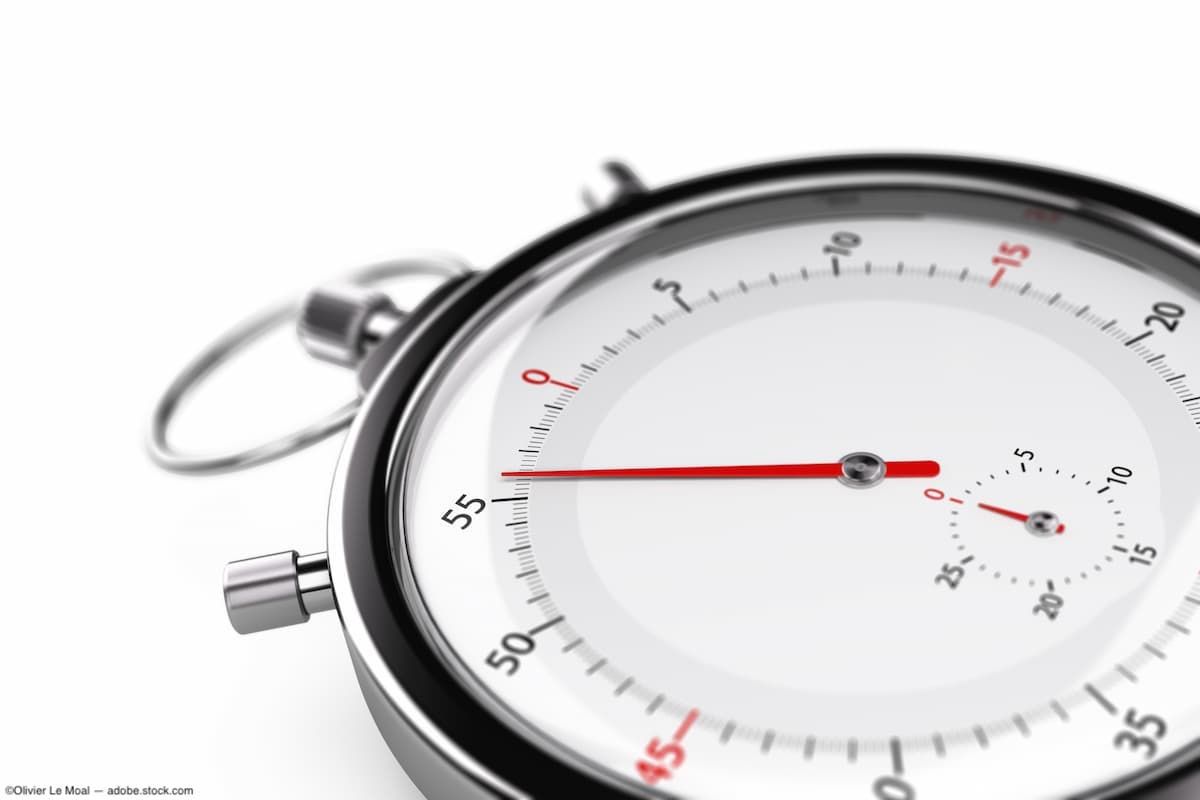Changing the game: The One Minute Eye Exam
iCRx is set to release the One Minute Eye Exam in April, potentially changing the way ophthalmologists and optometrists conduct eye examinations for corrective lenses.
(Image credit: AdobeStock/Olivier Le Moal)

An Arizona-based company has developed technology that could shift the eye examination paradigm.
In today’s instant-gratification society, ophthalmologists and eye care professionals are under increasing pressure amid growing scheduling difficulties, long wait and exam times, and inconvenient office locations that result in hurdles to eye care access for millions of people.
Naser Partovi is CEO of iCRx, the company that has developed the One Minute Eye Exam, which he said can solve all of these problems by offering an accurate and convenient eye exam in just 60 seconds by measuring the refractive errors of both eyes of a patient and then producing an eyeglass prescription.
Partovi said the technology was built on more than 10 years of university research.
“The One Minute Eye Exam, as the name implies, provides a corrective exam for glasses in less than a minute,” he said. “And that changes the paradigm of eye exams completely.”
According to iCRx, more than 100 million eye examinations are conducted each year in the US, and about 66% of Americans wear contact lenses or glasses. However, it is estimated that 1 in 10 Americans have not had an eye exam in the last 5 years.1
Moreover, the company also noted that more than 2 billion people around the world have a near or distance vision impairment and about half of these cases could have been prevented or have yet to be treated.1
Partovi noted that his company’s exam is accurate, convenient and affordable.
“The technology behind this is backed by decades of research in the university, mostly from the University of Arizona optics department,” Partovi explained.
Partovi noted that one of the company’s founders, Gholam Peyman, MD, who invented LASIK and holds more than 200 patents, originally came up with the idea of the technology behind the One Minute Eye Exam, which ultimately can have an impact on ophthalmologists and other eye care professionals by changing the way they handle examinations.
“For ophthalmologists and optometrists, this takes the burden of the eye exam away so they can focus on treating the patient and treating the disease,” Partovi said. “For the patient, it makes a big difference. Today, when you want to do an eye exam, you first call for an appointment, usually 2 to 3 weeks in advance.”
After getting to the office, the patient then waits for staff to call them in to see the physician.
“They take you to the autorefractor and get an approximation of your prescription” Partovi said. “They use the phoropter, which is 100-year-old technology with 80 lenses, they flip in front of you asking you which is better. This is very subjective, whereas our device is very objective. We don't ask patient for any input.”
With the One Minute Eye Exam, the patient is in the seat for 60 seconds.
“The first thing we do is measure the refractive errors of the eyes,” Partovi explained.
The process also includes a measurement of the refraction and autorefraction needed for corrective lenses. A chart with the corrections is presented to the patient. If the patient can see it in focus, the process is done.
“We have used it with more than 150 subjects, and they all love this,” Partovi said. “They were amazed with the technology.”
Mandi Conway MD, FACS, professor and chairperson of the Department of Ophthalmology at the University of Arizona College of Medicine in Phoenix, Arizona, said she believes iCRx can offer a an advantage to existing auto refractors.
“It is incredibly precise, and it does not require the patient to make decisions because they are often indecisive about fine-tuning their eyeglass prescription,” Conway explained.
Moreover, Conway noted the ability to quickly ascertain the prescription is incredibly time-saving in the clinical situation, particularly for technicians who are often assigned this duty.
“The high throughput screening is ideal for high volume clinics, like the VA and areas where eyecare providers are scarce,” Conway concluded. “I think this will be a game changer for global ophthalmology, as well."
Ajay Sanan, MD, an ophthalmologist in Tucson, Arizona, also lauded the technology.
"Novel technology that can provide fast and accurate refractions would be a welcome addition to greatly improve the office workflow,” Sanan said. “I was delighted to try the iCRx device and was impressed with the speed with which it could provide results. Previous generation auto-refraction devices have always stumbled on my post-Lasik eyes. The Opterix results were exactly correct."
With current eye examinations taking about 15 minutes, Partovi said reducing the time for an exam to 60 seconds allows ophthalmologists and optometrists to see and treat more patients.
The One Minute Eye Exam will be released on April 24, 2024, and Partovi said he anticipates it being used first in larger retail centers.